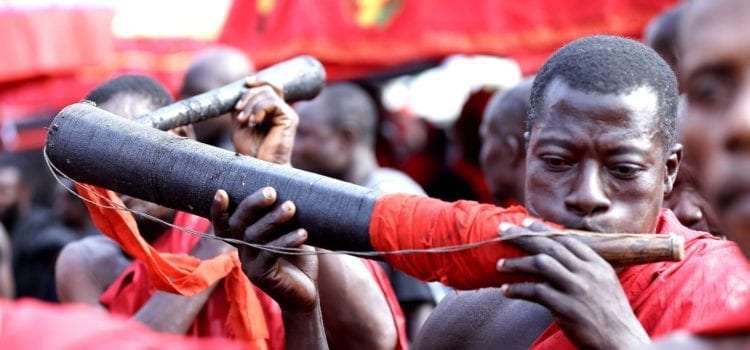Exploring Funeral Tourism In Ghana: Honoring Traditions And Celebrating Culture
Funeral tourism is a unique and increasingly popular form of tourism that allows individuals from different cultures and backgrounds to immerse themselves in the rich and diverse traditions associated with funerals around the world. Ghanaian funerals are not only solemn occasions for bidding farewell to loved ones but also colorful celebrations that reflect the culture, beliefs, and heritage of the people.
The Significance of Funerals in Ghanaian Culture
Funerals in Ghana are deeply ingrained in the cultural fabric of the society and hold immense cultural, social, and spiritual significance. Ghanaians believe in celebrating the life of the deceased and honoring their memory through elaborate ceremonies that often last for several days. These ceremonies provide an opportunity for family and community members to come together, share their grief, and pay their respects.
Ghanaian funerals are often characterized by lively music, vibrant dance, and colorful attire. The celebratory atmosphere is intended to reflect the belief that the departed individual has transitioned to the ancestral world and is still a part of the community.
The Peculiarities of Ghanaian Funerals
Ghanaian funerals are known for their distinctive characteristics and rituals. The duration of the mourning period, the type of rituals performed, and the specific practices can vary based on factors such as the ethnic group, region, and social status of the deceased. However, some common elements are present across various Ghanaian funerals:
- Duration of the Funeral:
– Ghanaian funerals can last anywhere from a few days to several weeks, depending on the family’s wishes and cultural practices. The duration allows family members and the community to gather, mourn, and celebrate the life of the departed.
- Traditional Attire:
– Mourners often wear specially designed funeral attire which is usually adorned with symbolic patterns and motifs. The colors and designs of the attire may signify the relationship between the mourner and the deceased.
- Funeral Rites and Ceremonies:
– Ceremonies often involve pouring libations, symbolic gestures, and prayers. Traditional priests or spiritual leaders play a vital role in guiding these ceremonies.
- Music and Dance:
– Music and dance are fundamental elements of Ghanaian funerals, providing a sense of celebration amidst the sorrow. Local bands and drummers perform traditional rhythms, and people dance to honor the departed.
- Display of Wealth:
– The family of the deceased often showcases their status and affluence during the funeral, through lavish displays, food, and entertainment for attendees.
Attracting Tourists: Understanding Funeral Tourism in Ghana
Funeral tourism in Ghana has gained traction over the years, attracting both local and international visitors interested in experiencing the unique cultural festivities associated with Ghanaian funerals. These tourists are eager to engage with the culture, witness the vibrant ceremonies, and gain a deeper understanding of the role funerals play in Ghanaian society.
- Cultural Exchange:
– Funeral tourism allows visitors to engage in a cultural exchange by participating in traditional Ghanaian rituals, learning about the beliefs surrounding death and the afterlife, and gaining insights into the art and craft associated with funerals.
- Educational Experience:
– Tourists can learn about the history, traditions, and beliefs of the Ghanaian people through firsthand experiences at funerals. This educational aspect provides a unique and enriching experience for travelers.
- Economic Impact:
– Funeral tourism contributes to the local economy by generating revenue for businesses involved in hospitality, transportation, catering, and event planning. Additionally, artisans and craftsmen benefit from the sale of funeral-related items.
- Promoting Ghana’s Tourism Industry:
– By promoting funeral tourism, Ghana can attract more tourists, boost tourism revenue, and establish itself as a culturally diverse and vibrant travel destination.
Conclusion
Funeral tourism in Ghana is a fascinating and culturally enriching experience that allows individuals to immerse themselves in the unique and vibrant traditions associated with Ghanaian funerals. Through this form of tourism, visitors not only pay their respects to the departed but also gain a deeper appreciation for the rich and diverse cultural heritage of Ghana.
As the world becomes more interconnected and travelers seek authentic and immersive experiences, funeral tourism in Ghana is poised to grow, contributing to the flourishing tourism industry and promoting cross-cultural understanding and appreciation.
By Johnny Arthur-Quarm
(Ghana Tourism Authority)


 Call Center
Call Center

 Call Center: 0307007100
Call Center: 0307007100